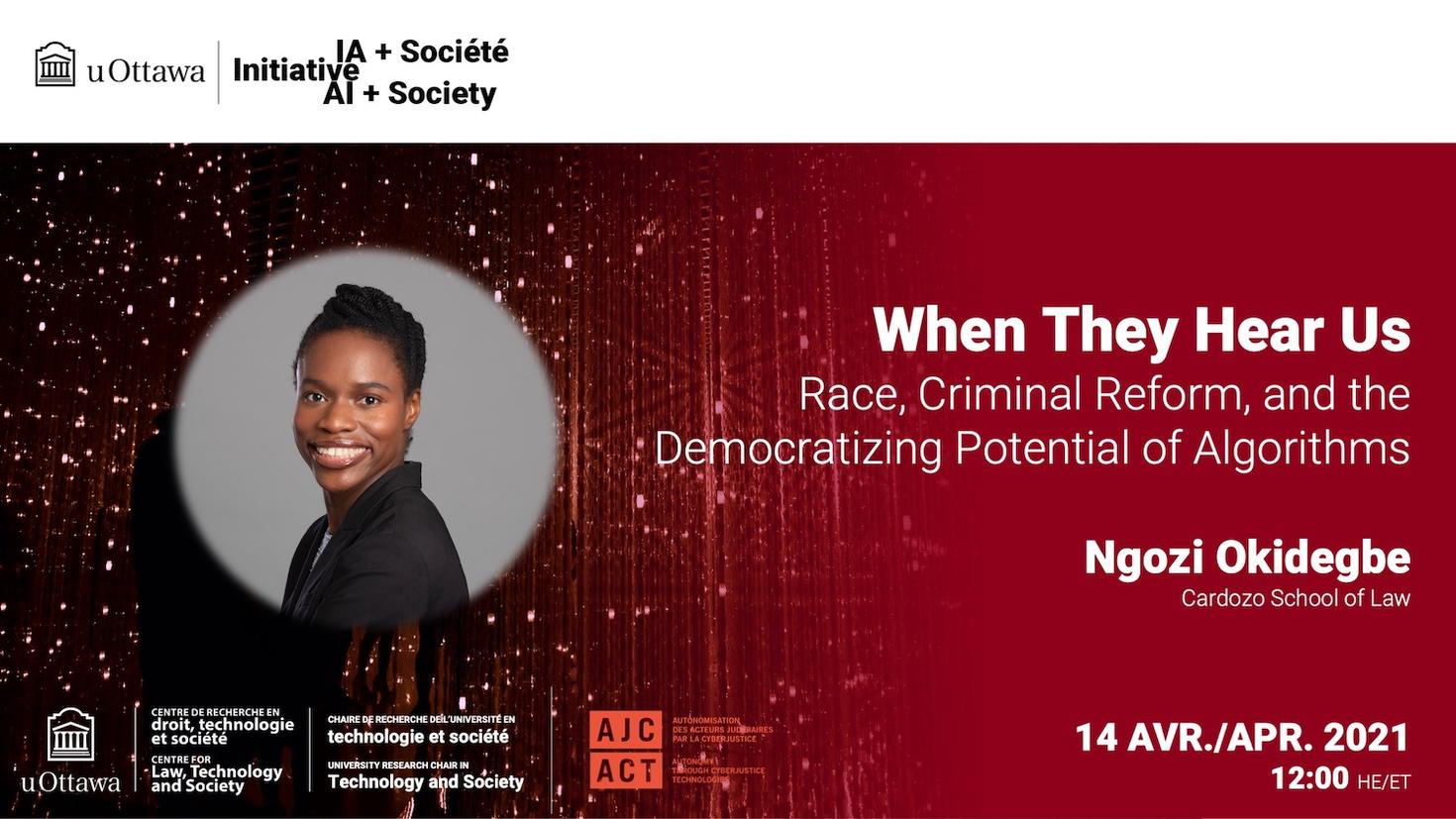
Presentation
The AI + Society Initiativeand the University of Ottawa Research Chair in Technology and Society, in collaboration with the University of Ottawa Centre for Law, Technology and Society and the Autonomy through Cyberjustice Technologies Partnership, present:
Jurisdictions are increasingly embracing the use of pretrial risk assessment algorithms as a solution to the problem of mass pretrial incarceration. Conversations about the use of pretrial algorithms in legal scholarship have tended to focus on their opacity, determinateness, reliability, validity, or their (in)ability to reduce high rates of incarceration as well as racial and socioeconomic disparities within the pretrial system. Prof. Okidegbe breaks from this tendency, examining these algorithms from the democratization of criminal justice perspective. Using this framework, Prof. Okidegbe points out that currently employed algorithms are exclusionary of the viewpoints and values of the racially marginalized communities most impacted by their usage since these algorithms are often procured, adopted, constructed, and overseen without input from these communities.
This state of affairs should caution enthusiasm for the transformative potential of pretrial algorithms since they reinforce and entrench the democratic exclusion that members from these communities already experience in the creation and implementation of the laws and policies shaping pretrial practices. This democratic exclusion, alongside social marginalization, contributes to the difficulties that these communities face in contesting and resisting the political, social, and economic costs that pretrial incarceration has had and continues to have on their communities. Ultimately, Prof. Okidegbe stresses that resolving this ensuing democratic exclusion and its racially stratifying effects might be possible but requires shifting power over pretrial algorithms downward toward these communities. Unfortunately, this prescription may be irreconcilable with the aims sought by algorithm reformers, revealing a deep tension between the algorithm project and racial justice efforts.
About the Speaker
Ngozi Okidegbe is an Assistant Professor of Law at Cardozo School of Law. She researches and writes in the areas of criminal procedure, critical race theory evidence, technology, and racial justice. Her work explores the ways in which the use of predictive technologies in the criminal justice system impacts racially marginalized communities. Before joining Cardozo, Prof. Okidegbe served as a law clerk for Justice Madlanga of the Constitutional Court of South Africa and for the Justices of the Court of Appeal for Ontario. Prof. Okidegbe graduated with a B.C.L./LL.B. from McGill University’s Faculty of Law, where she was awarded the Edwin Botsford Busteed Scholarship, the Rosa B. Gualtieri Prize, the Daniel Mettarlin Memorial Scholarship, and the Schull Yang Award. She subsequently earned her LL.M. from Columbia Law School, where she graduated as a James Kent Scholar.
Facilitator
Yuan Stevens is the Policy Lead on Technology, Cybersecurity, and Democracy at the Ryerson Leadership Lab. An LL.M. candidate at the University of Ottawa and a Research Fellow of the University of Ottawa Research Chair in Technology and Society, Yuan Stevens is also a Research Affiliate at McGill University‘s Centre for Media, Technology & Democracy and at Data & Society Research Institute.
The event is made possible thanks to the support of the University of Ottawa Research Chair in Technology and Society, and the Scotiabank Fund for the AI + Society Initiative at the University of Ottawa